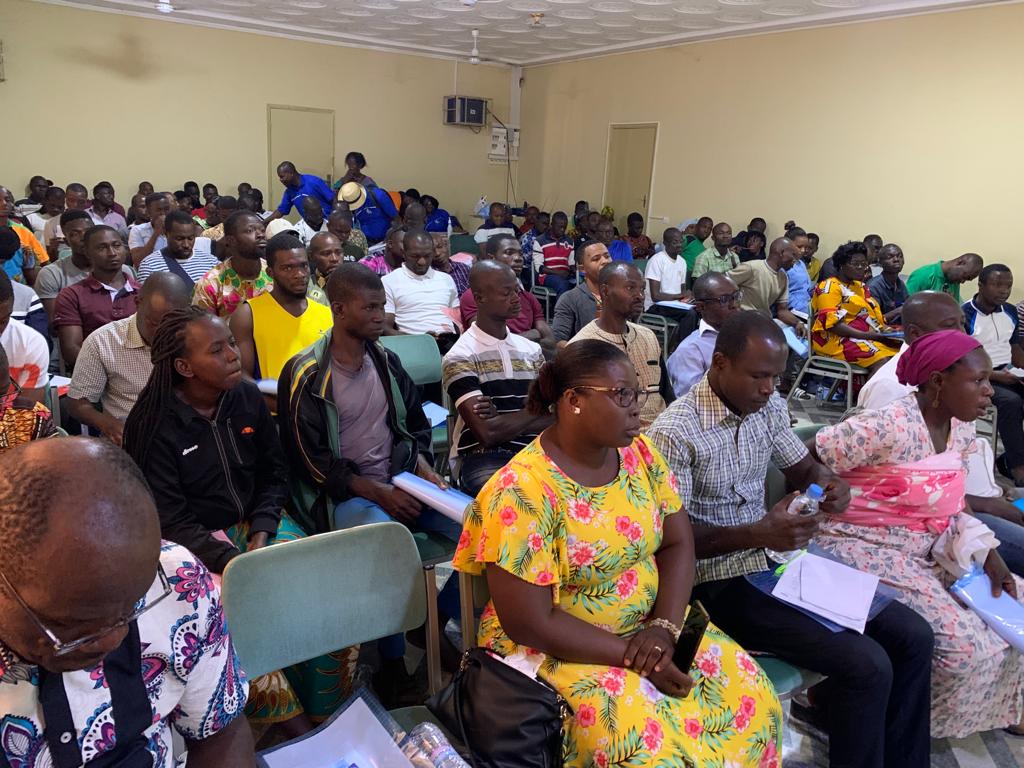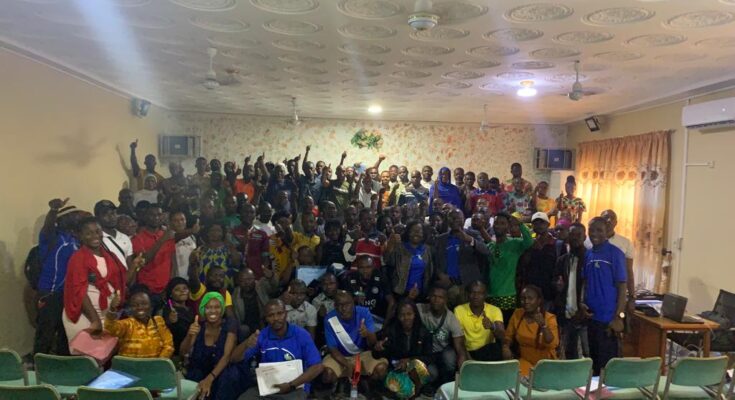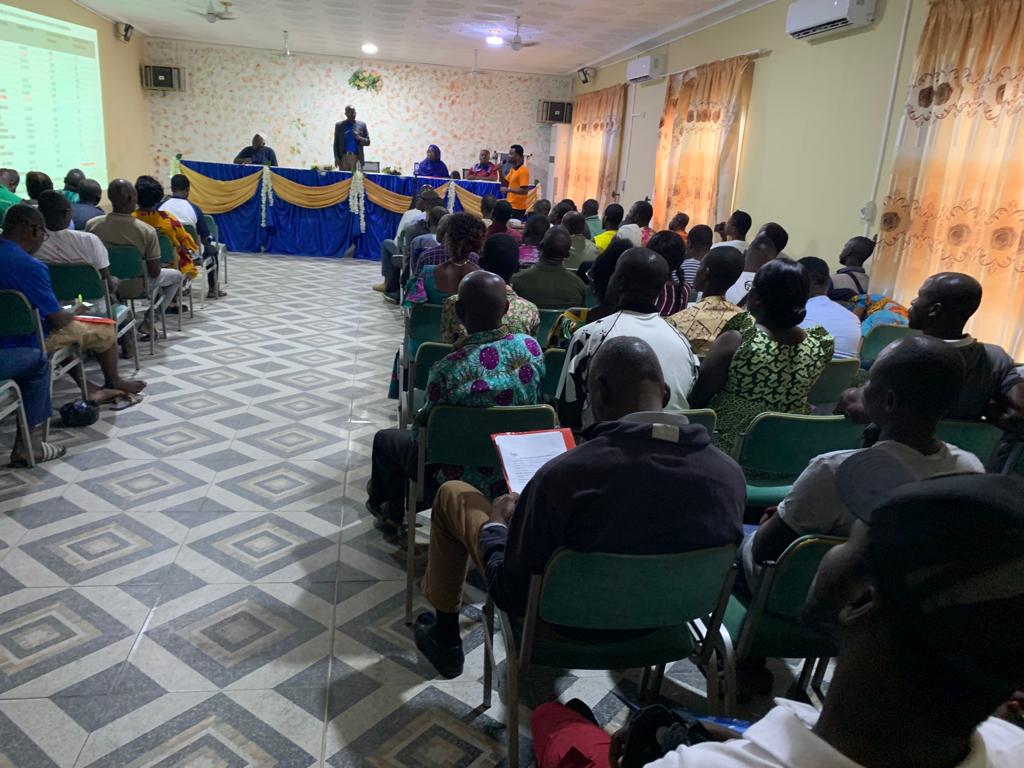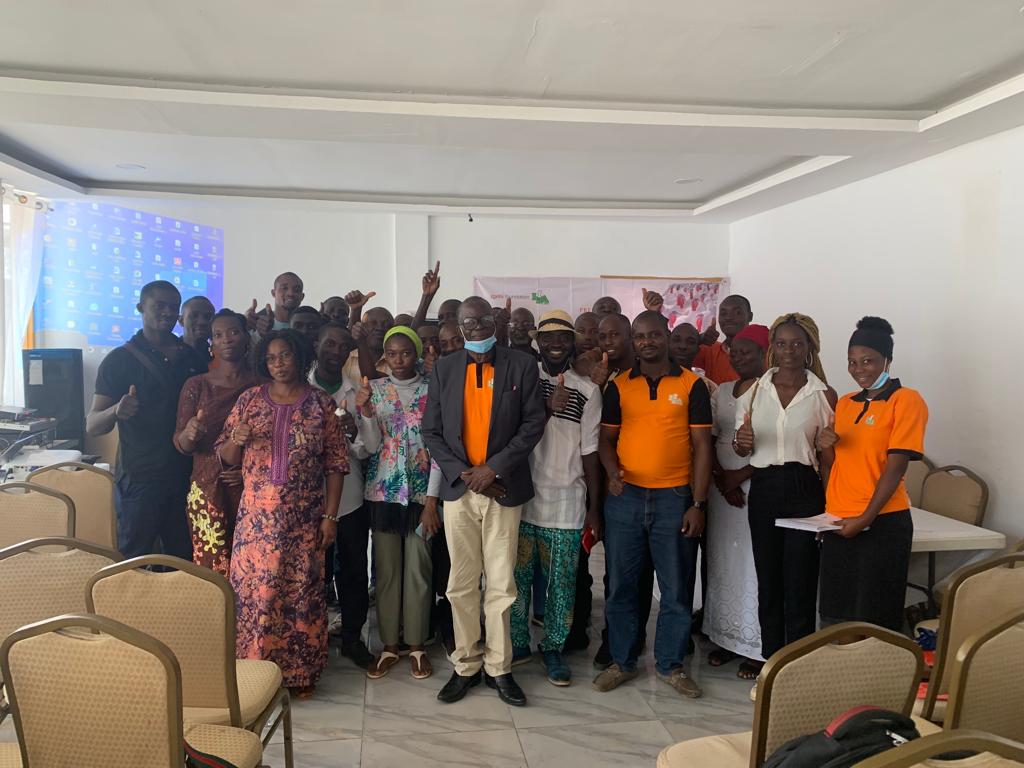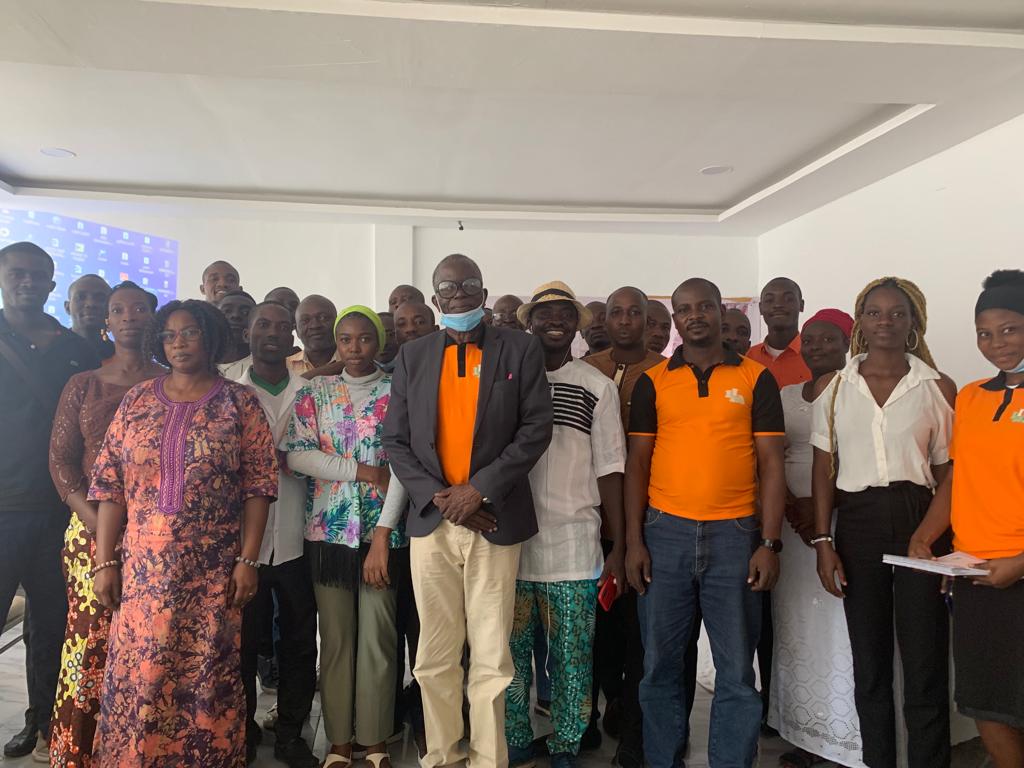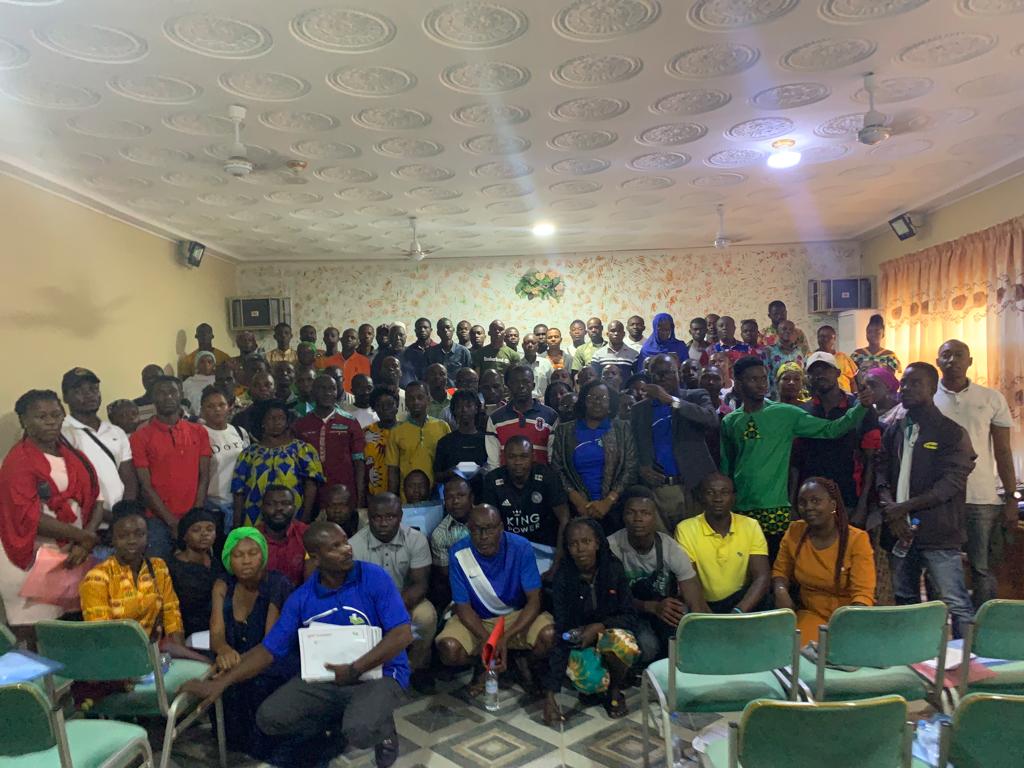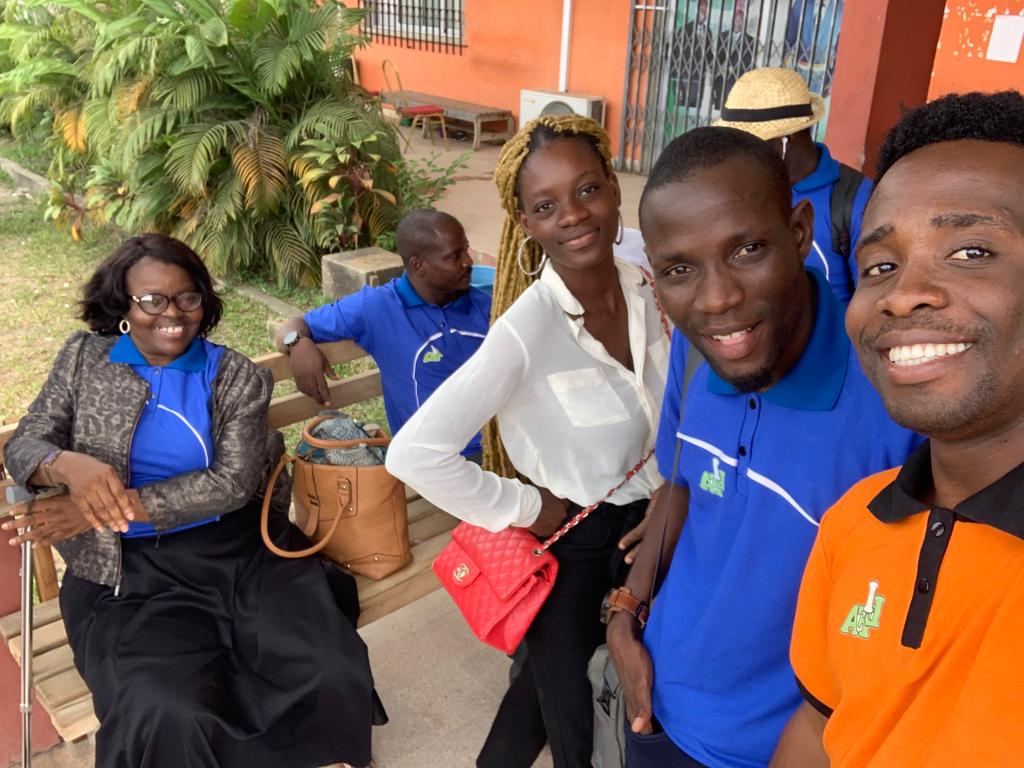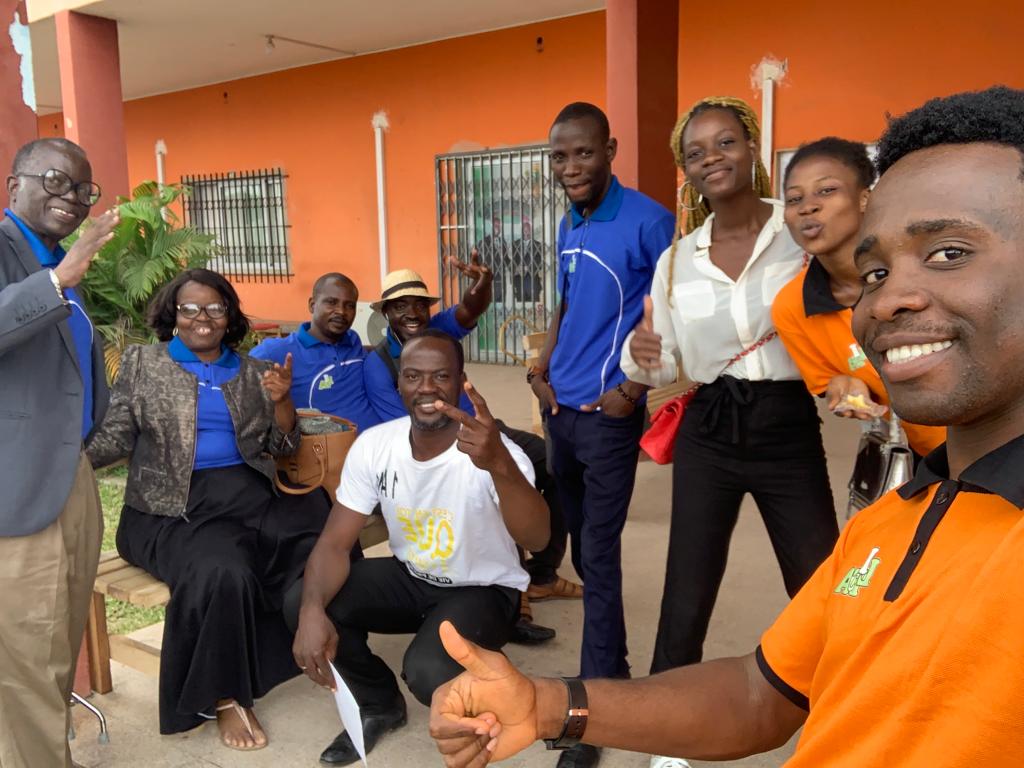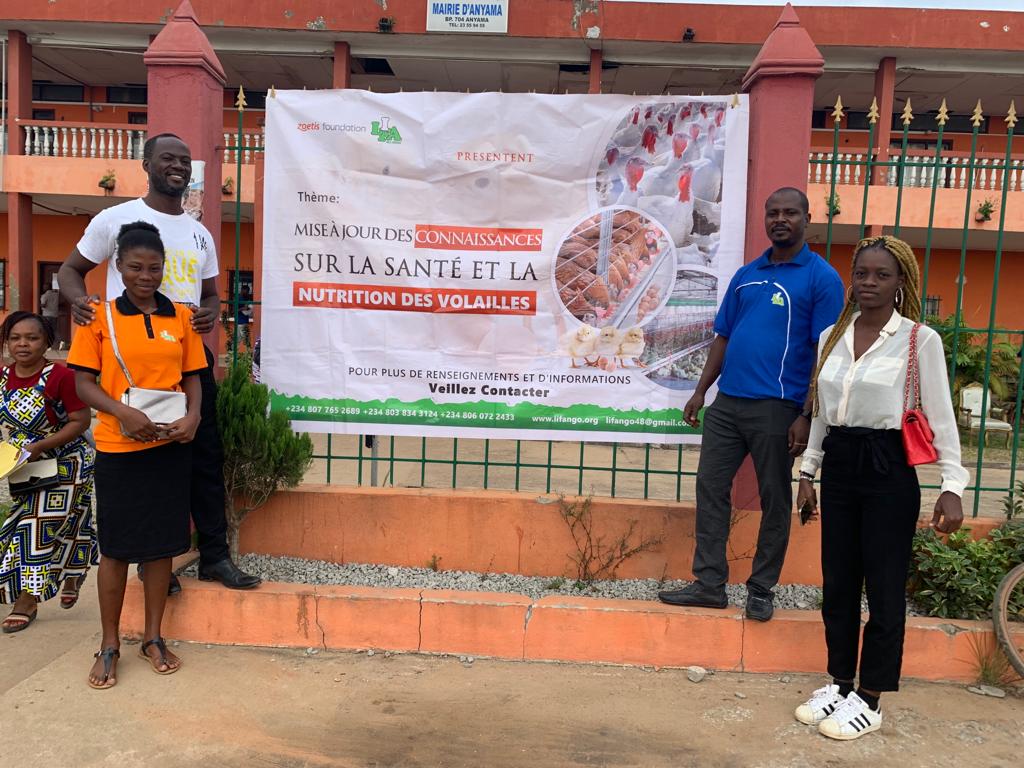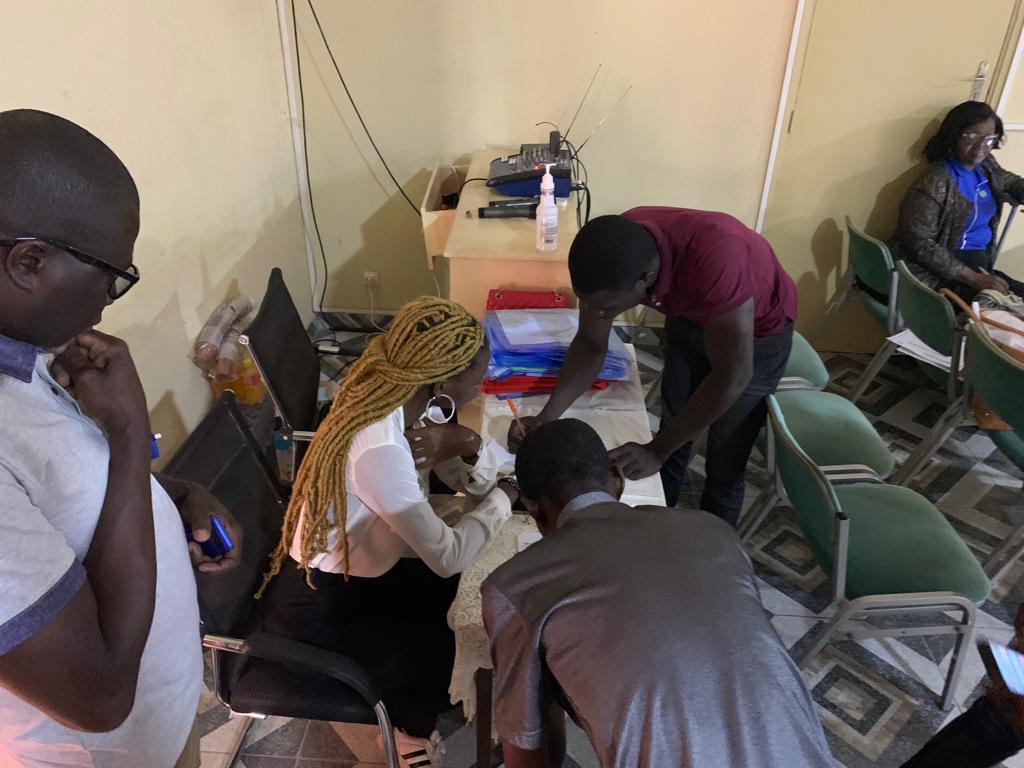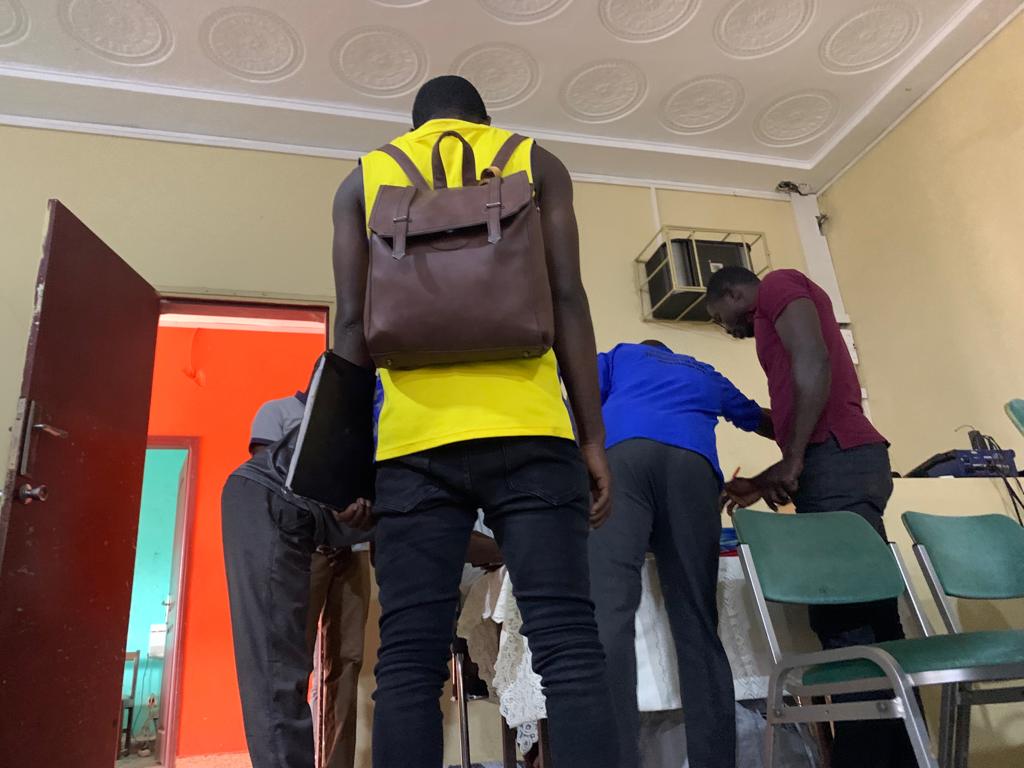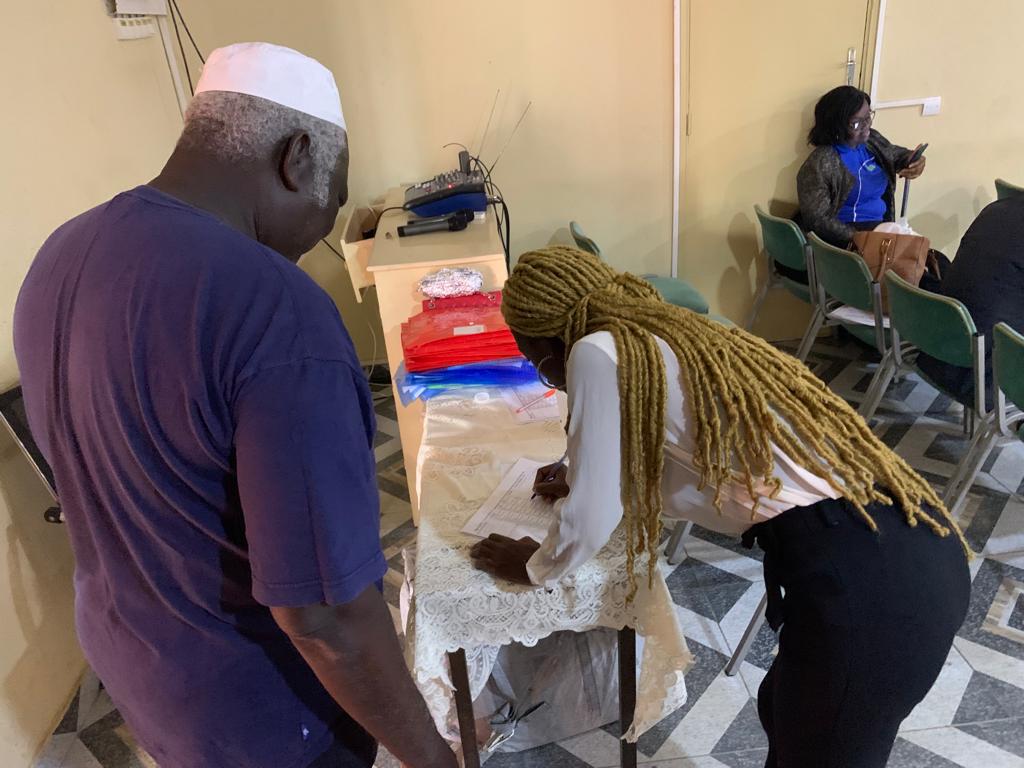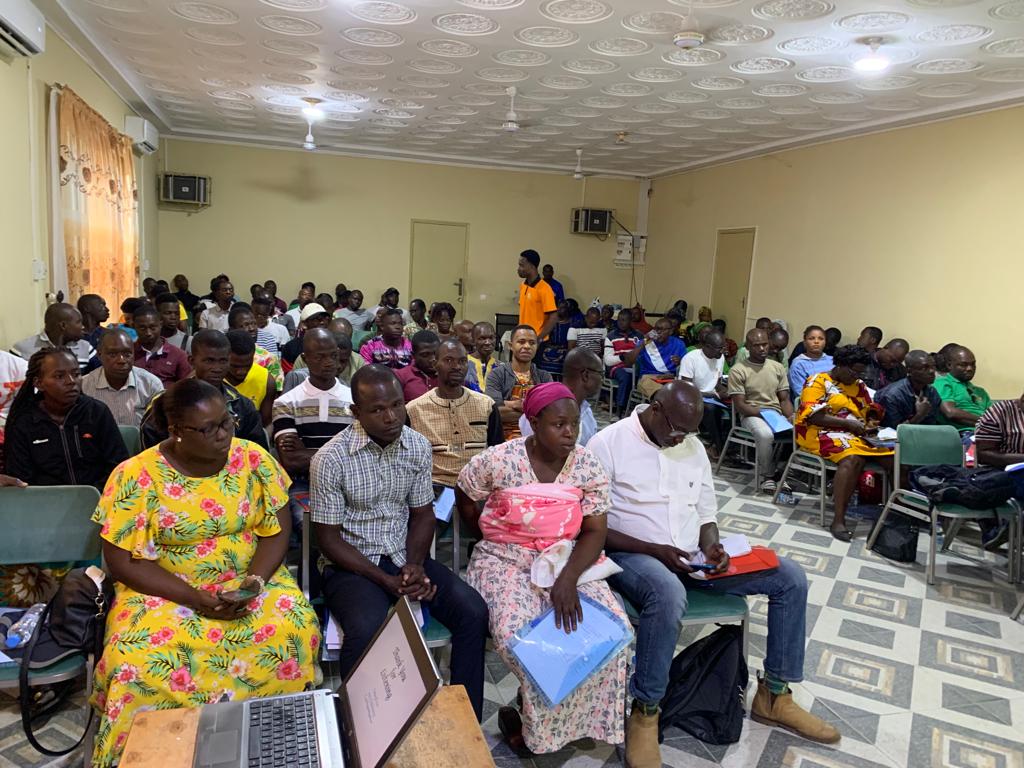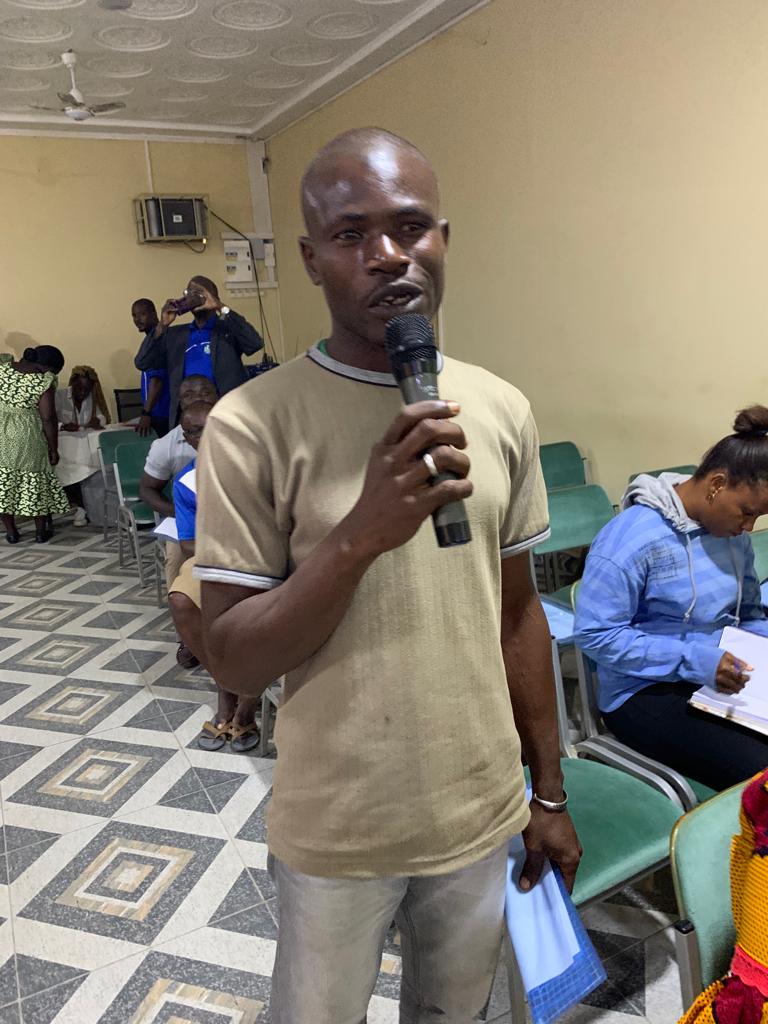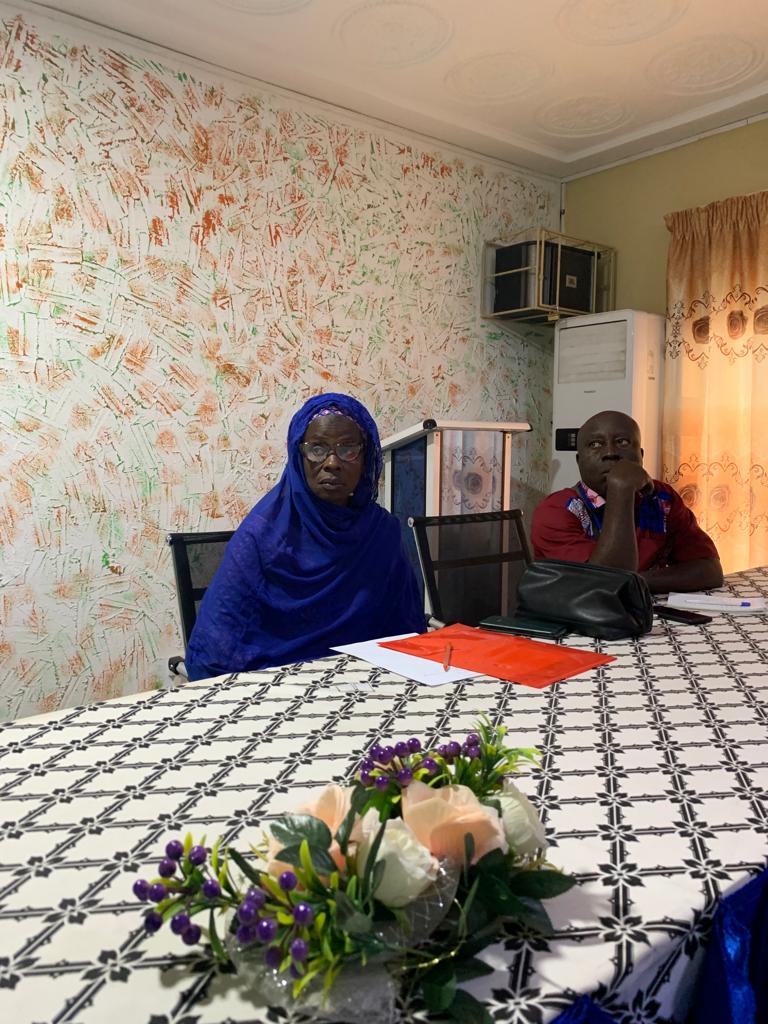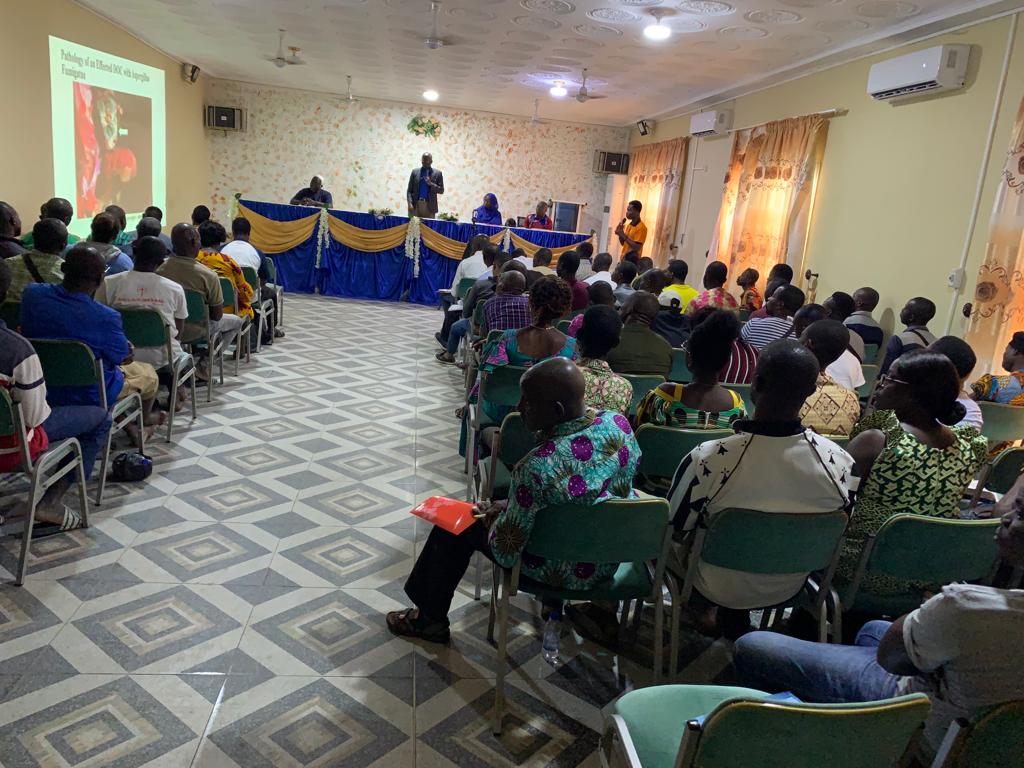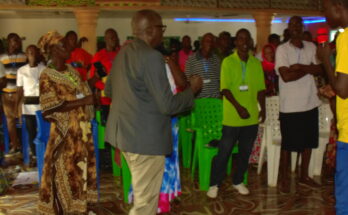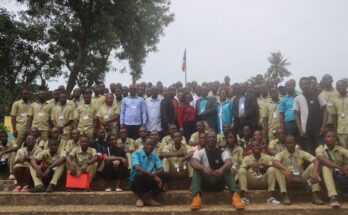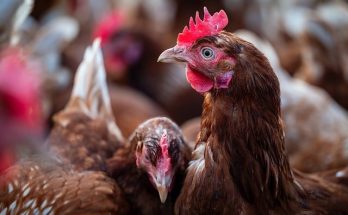The Knowledge Update on Poultry Health and Nutrition, organized by the Livestock Industry Foundation for Africa (LIFA) sponsored by Zoetis Foundation, was held in Cote d’Ivoire on the 2nd and 4th August, 2022, respectively. The training took place at Restaurant O’ Spice, Riviera 3, Derriere Chic Shop on the 2nd of August, 2022, and the second training location was at Mairie d’ Anyama (Anyama City Town Hall) on the 4th of August, 2022. The programme aims at improving livestock health and positively impacting farmers’ and veterinarians’ livelihoods in Sub-Saharan Africa.
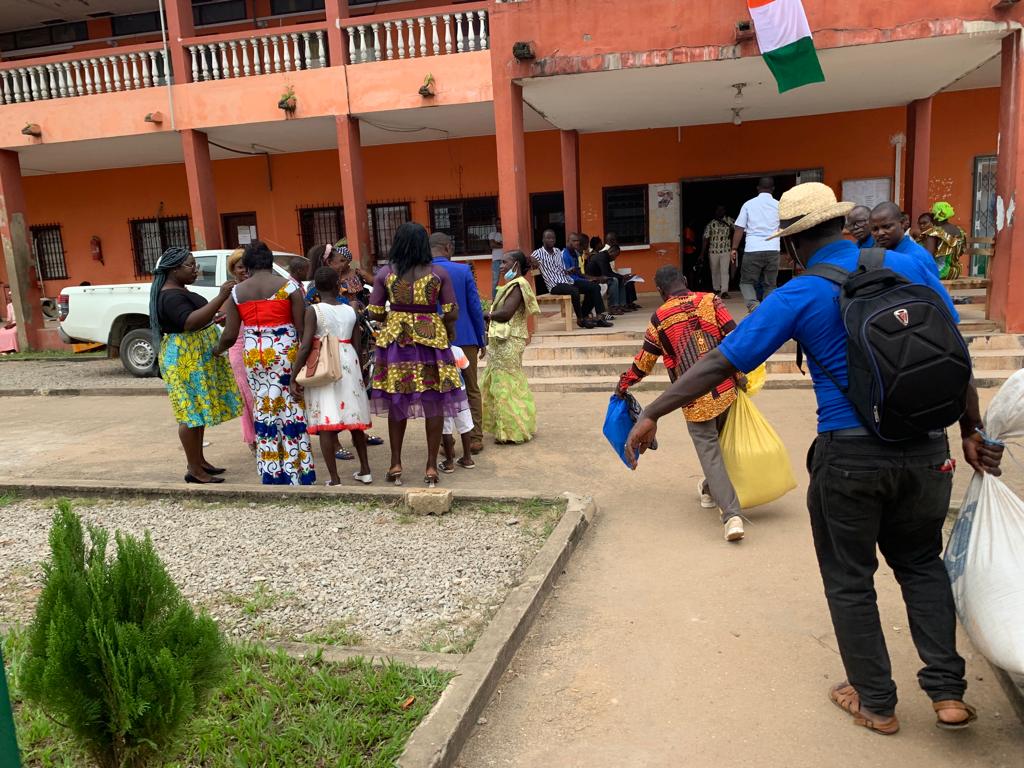
The training programme on poultry health and nutrition held in Cote d’Ivoire recorded 489 participants through face-to-face training. The virtual session conducted through LIFA official Facebook page recorded an encouraging participation (https://fb.watch/gVJPNPObek/). Different dignitaries such as farmers’ associations, representatives from agricultural NGOs, poultry marketers, journalists, and many others graced the occasion. Participants are distributed as follows: (14.5%) veterinarians, (43.4%) farmers, (8.8%) animal nutrition, (9.2%) students, while 24.1% constitute other profession such as marketers, retirees, sales rep, etc. The training program’s gender distribution at the locations is 36% female and 64% male.
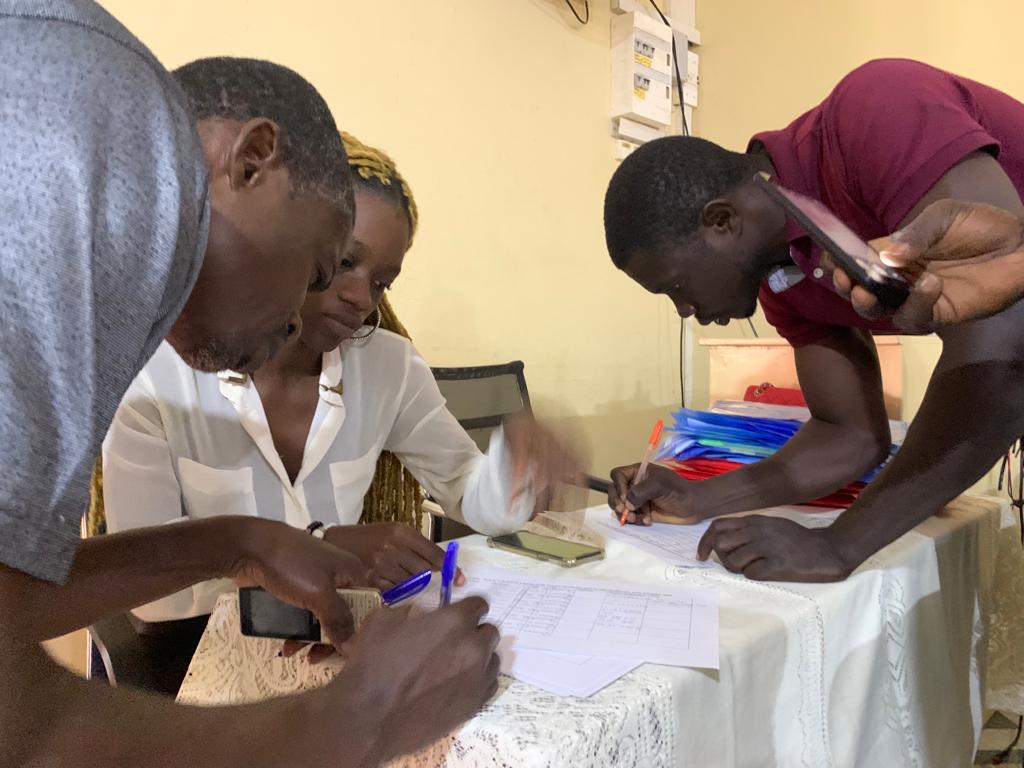
The training programme focuses on the critical challenges facing poultry production. Dr. Stephen Adejoro, the president of the Livestock Industry Foundation for Africa (LIFA) welcomes the participants to the training programme. Other dignitaries on the high table also address the participants and encourage each and every one to patiently listen to the lecturers for the benefit of their poultry businesses. The president of LIFA, Dr. Adejoro, in his welcome address, appreciates the support of the Zoetis foundation and applauds the support of Anisklanguage over the years of partnership.

Mr. Lawal presented to the participants information about LIFA, the Zoetis Foundation, and Knowledge Update on poultry health and nutrition. He described LIFA as a non-profit organization that is aimed at enhancing sustainable growth for Sub Saharan Africa’s livestock livelihoods. He reported that LIFA serves as a medium through which rural farmers can get involved in livestock industry development while reducing vulnerability to food insecurity and poverty and enhancing living standards. In his presentation, he reported that the Zoetis Foundation supports communities and the people who care for animals, with a specific focus on advancing opportunities for veterinarians and farmers around the world.
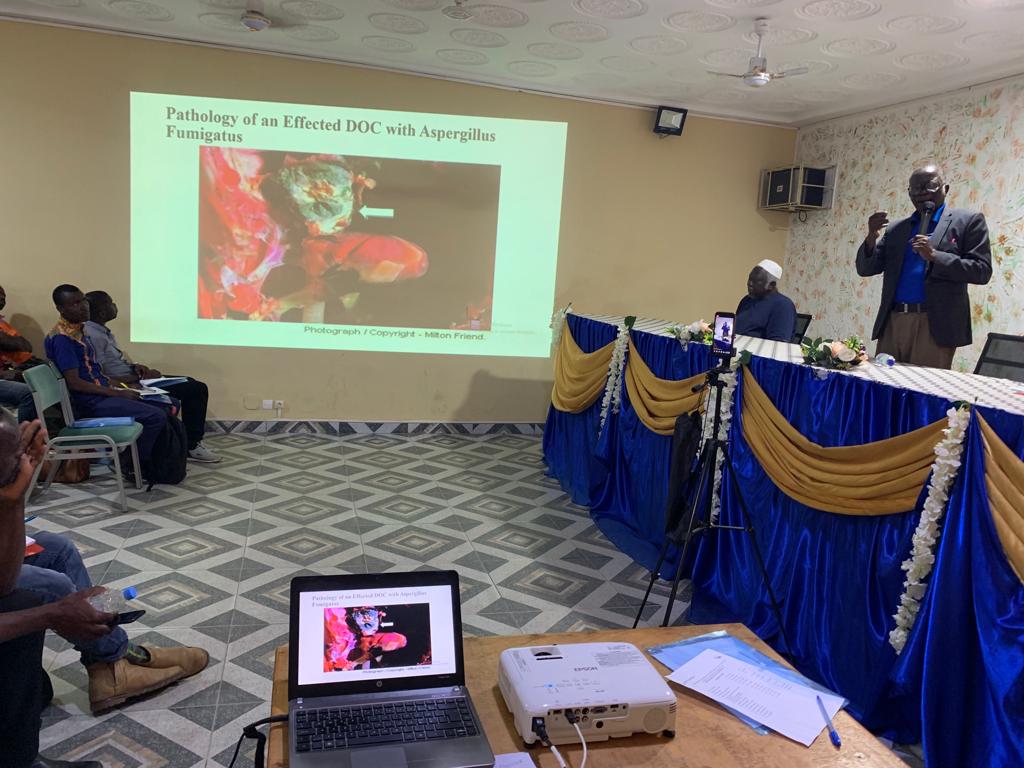
The first lecture delivered was on “Managing Vaccination Failure in Poultry Farms in a Humid Tropical Climate; Case Studies from Nigeria,” presented by Dr. Stephen Adejoro. He started his presentation by explaining the importance of the training programme to the participants by illustrating the predicament being faced by farmers in The Gambia and how the programme has had a tremendously positive impact on the farmers who attended the training programme. He discusses the various kinds or categories of diseases affecting the poultry industry and possible solutions such as vaccination. He went further in his explanation by asking farmers’ reasons why vaccination fails after being administered to birds to cure or mitigate a particular disease. He then conducted a pilot survey to identify the level of farmers’ understanding of the reasons why vaccines fail.

Dr. Adejoro discussed with the participants how the nature or condition of the materials used in feed production contributes to more than 80% of vaccination failure. He spoke about the difficulties Mycotoxin has caused in poultry production. He identified Mycotoxin as the core problem in vaccination failure. Dr. Adejoro classifies mycotoxins into small and large molecules. The small molecules listed are: Aflatoxins, Ochratoxin A, and T2 toxin, while the large molecules are: Zearalenone, Nivalenol/deoxynivalenol, and Fuminosin. He referred to the large molecules as the enemies of the farmers. In his presentation, he listed the effects mycotoxins caused on the poultry business.
- Increase the cost of production
- Increase mortality
- Reduce weight of birds
- Reduce farmer’s income
- Reduce egg production
- Reduce feed intake
- Reduce hatchability
- Increase infertility
He then concluded that ignorance or non-application of appropriate toxin binders prophylactically and strategically in health management may continue to account for more vertically and horizontally transmitted Aflatoxin contaminated DOC in the region. He included in his summary that the poultry industry must focus on improving health status and sustainability to achieve the anticipated growth for the region.
The second lecture was presented by Mr. Lawal on Bird Flu (Avian Influenza): A Need to Reverse the Solo Strategy of Stamping Out with Compensation by Developing Countries. He started his presentation by explaining avian influenza as a highly contagious viral disease that affects both domestic and wild birds. It is described as a devastating viral disease of poultry with zoonotic implications for human health. He describes the major factors that contributed to the spread of AI as:
- Live Bird Market
- Wild Birds/Migratory Birds
Mr. Lawal discussed the role of migratory birds in the spread of AI. He explained to the participants that migratory waterfowl help to provide early warning of threats from avian influenza to poultry and potentially human health. According to his explanation, he reported that there are eight migratory routes, of which three cut across Africa. The following symptoms of AI were listed in his presentation.
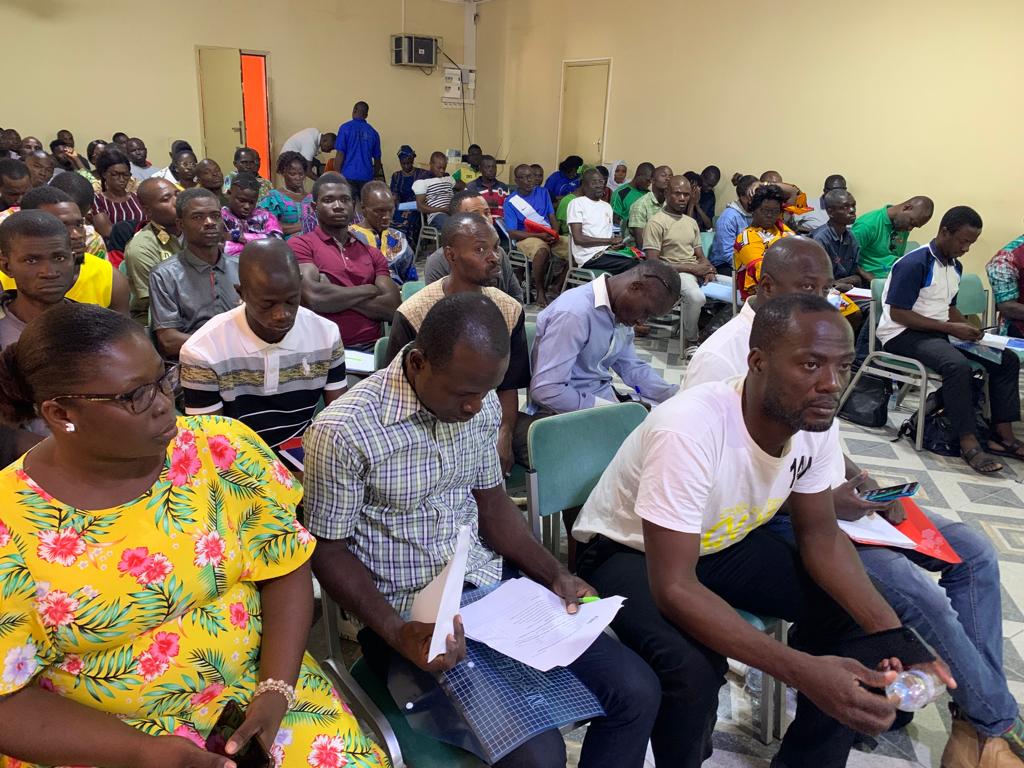
- Sneezing
- Coughing
- Ocular and nasal discharge
- Swelling of various parts
- Lack of energy, appetite and coordination
- Reduction in egg production or soft shelled of misshapen eggs
Mr. Lawal in his presentation echoed Dr. Adejoro’s conclusion on AI in 2006/2007 that compensation may not be sustainable in a monolithic resource economy and that vaccination is not the initial cause of AI but remains a valuable tool if used wisely under a properly formulated policy. The economic implications of AI (the lesson from Nigeria) were discussed. It was shown that there is an upward trend in the local government area affected, farms affected, estimated direct loss, and percentage effect of AI loss on national GDP. He went on to describe the situation surveillance team observation in Nigeria to the spread of AI as follows:
- Dead and infected birds are not well deposited by farmers
- Some farms were infected from feed millers centers due to exchange of bags
- Lack of proper farm records
- Lack of proper biosecurity measures
He concluded his presentation by highlighting the various steps to mitigating the risk of avian influenza.
- Constant or surveillance study on migratory birds in West Africa
- Conducting zero epidemiological studies of the migratory birds in various ecology zones of West Africa.
- Quantification of the outcome of the study on country basis
- Creating an epidemiological risk map for decision makers.
Following the lecture, the training session concludes with questions and answers from the attendees. Numerous concerns regarding the lessons given as well as other enquiries regarding the challenges that different chicken producers faced in Cote d’Ivoire were raised. The majority of participants requested that the training program go on for longer and proposed that it go on for more than one day. Following the concluding prayer, everyone gathered for a group shot.
